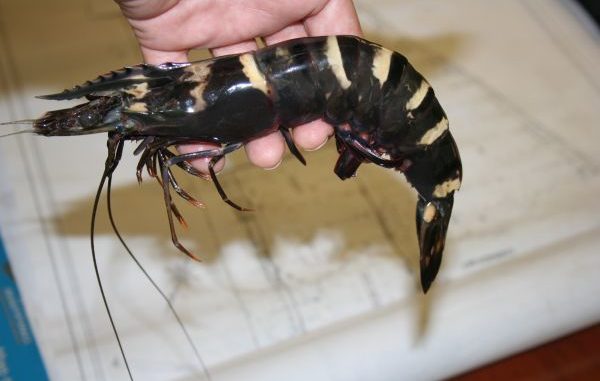
Louisiana shrimpers encouraged to report, retain prawns for further evaluation
The Louisiana Department of Wildlife and Fisheries is asking local shrimpers to report any catches of Asian tiger prawns to the department, according to a press release.
While little is currently known about the impact of tiger prawns on indigenous Louisiana shrimp, these reports are crucial in helping LDWF biologists monitor their distribution and determine the presence of possible spawning populations.
To report catches of Asian tiger prawns please contact Robert Bourgeois at rbourgeois@wlf.la.gov or (225) 765-0765 or Martin Bourgeois at mbourgeois@wlf.la.gov or (985) 594-4130, with the date, location and size of capture. Photographs are encouraged.
The prawns are easily identified by their large size, dark color and white banding found along the head and between tail segments. Occasionally, red or yellow stripes are present. LDWF requests that harvesters freeze the prawns and contact the biologists listed, the release states.
It is unknown how and when tiger prawns were first introduced into the Gulf of Mexico. The prawns are native to the Indo-Pacific rim, but were first documented in Louisiana in 2007.
Prior to the 2011 fall inshore shrimp season, reported captures in Louisiana waters numbered fewer than 25, with none taken any further west than Vermilion Bay.
However, captures since have dramatically increased and now about 80 reports havae been received. One shrimper alone reported catching 13 prawns in Lake Ponchartrain, and a Dulac shrimp dock has reported fishermen catching in excess of 100 tiger prawns following the opening of the 2011 fall season.
Recently, there have been reports of catches west of Vermilion Bay.
Tiger prawns belong to the same family as Louisiana’s native brown, white and pink shrimp, with the notable difference that prawns reach a maximum length of 14 inches and weigh as much as 23 ounces.
According to the release, there is no evidence that the tiger prawns feed on native shrimp, but any potential impact over competition for food and resources remain unknown.
Tiger prawns and native shrimp adopt different diets as they grow and mature, and may become more predatory as body size increases, the release states.


